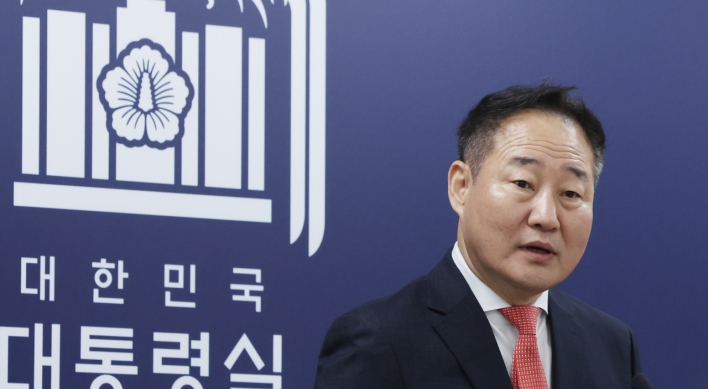History lessons related to Dokdo, the rocky islets in the waters between Korea and Japan, will be reinforced in middle and high school curriculums, the Education Ministry said yesterday.
Middle school Korean history will be extended from three chapters to four, among which two will mention Dokdo in further detail, according to the ministry’s revised curriculum guidelines.
The table of contents will also specify that the chapters aim at “informing the students on how Japanese colonial rule violated Korea’s sovereignty and illicitly incorporated Dokdo.”
Middle school Korean history will be extended from three chapters to four, among which two will mention Dokdo in further detail, according to the ministry’s revised curriculum guidelines.
The table of contents will also specify that the chapters aim at “informing the students on how Japanese colonial rule violated Korea’s sovereignty and illicitly incorporated Dokdo.”

High school Korean history will be reduced from eight chapters to seven but will include additional details on the islets in relation to Japanese imperialism and international politics.
The new information is to focus on teaching students about territorial disputes in the Northeast Asian region, including the Dokdo issue, and how they are related to a wider pool of historical and legal debates.
New history textbooks, based on these guidelines, will be introduced in high schools next March and in middle schools in 2012, said officials.
Koreans have been angered with what they see as Japan’s repeated attempts to distort historical facts, including those involving Dokdo in its school textbooks.
In March, Seoul once again raised objections against new Japanese textbook guidelines which largely defended colonial rule and claimed that Dokdo fundamentally belongs to Japan.
“What we need to do in order to set history straight is to educate our younger generation, as well as the Japanese people,” said Yuji Hosaka, professor at Sejong University in Seoul.
The Japanese-turned-Korean scholar is widely known for his defense of Korea’s stance in the historical debate.
“Above all, we, the Korean people, need to really know about Dokdo before claiming it.”
By Bae Hyun-jung (tellme@heraldcorp.com)
The new information is to focus on teaching students about territorial disputes in the Northeast Asian region, including the Dokdo issue, and how they are related to a wider pool of historical and legal debates.
New history textbooks, based on these guidelines, will be introduced in high schools next March and in middle schools in 2012, said officials.
Koreans have been angered with what they see as Japan’s repeated attempts to distort historical facts, including those involving Dokdo in its school textbooks.
In March, Seoul once again raised objections against new Japanese textbook guidelines which largely defended colonial rule and claimed that Dokdo fundamentally belongs to Japan.
“What we need to do in order to set history straight is to educate our younger generation, as well as the Japanese people,” said Yuji Hosaka, professor at Sejong University in Seoul.
The Japanese-turned-Korean scholar is widely known for his defense of Korea’s stance in the historical debate.
“Above all, we, the Korean people, need to really know about Dokdo before claiming it.”
By Bae Hyun-jung (tellme@heraldcorp.com)





![[K-pop’s dilemma] Can K-pop break free from ‘fandom’ model?](http://res.heraldm.com/phpwas/restmb_idxmake.php?idx=644&simg=/content/image/2024/05/09/20240509050541_0.jpg&u=20240509173751)




![[News Analysis] Yoon's first 2 years marked by intense confrontations, lack of leadership](http://res.heraldm.com/phpwas/restmb_idxmake.php?idx=644&simg=/content/image/2024/05/09/20240509050612_0.jpg&u=20240509233252)







![[Today’s K-pop] NCT’s Mark to drop 1st solo album in February 2025](http://res.heraldm.com/phpwas/restmb_idxmake.php?idx=642&simg=/content/image/2024/05/10/20240510050597_0.jpg&u=)